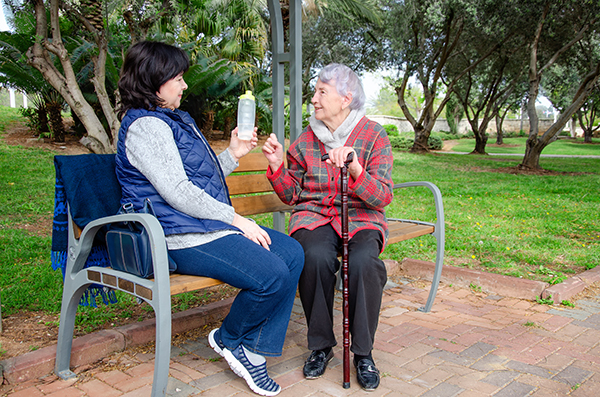Communication Strategies With Dementia Patients: Try These Nonverbal Techniques
Conversations with a senior loved one trying to cope with all the challenges of Alzheimer’s and dementia, particularly in the middle and later stages, can be frustrating – both for you personally as well as for your loved one. Brain changes affect the capacity to listen, process, and respond effectively to conversations. By employing innovative techniques […]
Communication Strategies With Dementia Patients: Try These Nonverbal Techniques Read More »










